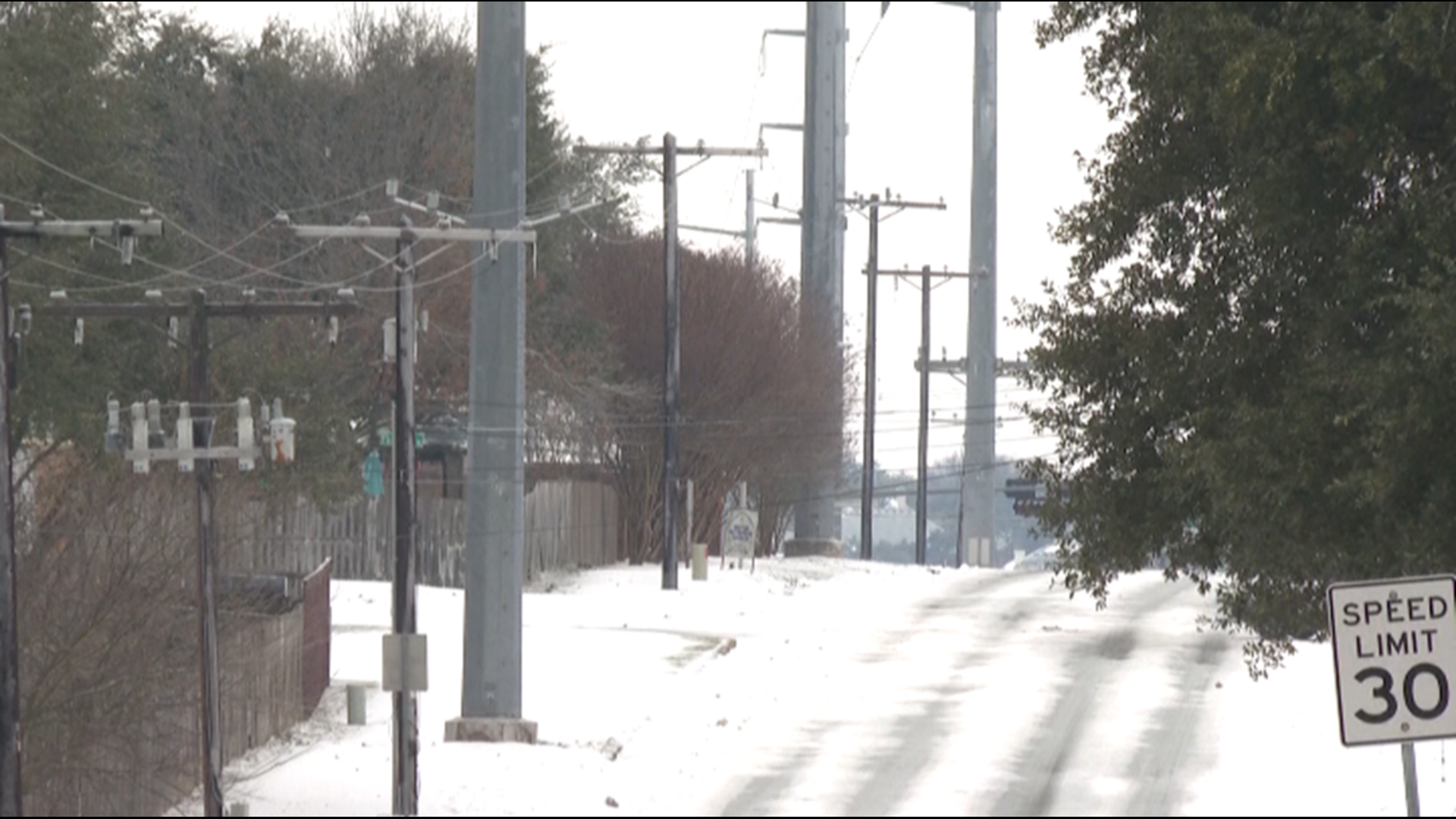TEXAS, USA — The Electric Reliability Council of Texas (ERCOT) said 185 power generators, or power plants or producers, have been tripped offline as of Wednesday morning. This was up from around 80 Tuesday afternoon.
After the initial wave of blackouts Sunday night, ERCOT has hoped for a faster recovery. But as new power plants or other power sources come online, other providers have begun to fail, which left the electric grid constantly short on power and millions of Texans in the dark.
Wednesday morning, statements made during an ERCOT online press conference revealed a lack of regulation, and inspection, of Texas power plants. Many of those plants may continue to go offline until state temperatures rise above freezing.
ERCOT had previously stated that wind, solar, and thermal power sources were coming back online, but some natural gas sources continued to struggle. That was still the case Wednesday morning.
"Enormous amounts of electric generation, power on the supply side of the equation, was taken out of service by the storm. Not only taken out of service by things that happened during the storm, but also it had an impact on gas supply," ERCOT CEO Bill Magness said. "Getting those resources back on the grid is the central solution to getting power back."
Magness said the current outages are needed to continue to avoid "Uncontrolled, cascading, blackouts."
Why power plants are going offline
Senior Director of System Operations Dan Woodfin said many power plants in Texas are not as prepared for freezing temperatures as power generators in the north would be. He said in some situations generators would not use all weatherization technology available.
"Wind turbines for example, there are things that, packages that you can buy for those that, to some extent, protect against colder weather. Typically when generators are making those investment decisions. We have such infrequent cold weather that not all of them provide those packages." Woodfin said.
Woodfin also told reporters power plants in the northern part of the U.S. are typically inside a building to keep the plants warm. Texas plants, he said, are typically not inside because of the very high temperatures and the overheating the building would cause. As freezing conditions continued, Woodfin said components in those plants were freezing as well.
"Instrument lines that are used as part of the protection system for the plants froze up during the severe cold weather. Those things took the plants offline. Just various things that froze up because of the cold weather," Woodfin said. "There are some issues in the natural gas systems as a whole. You are not getting enough gas out of the ground into the pipe systems."
Woodfin said icy roads were preventing the movement of water and repair personnel as well.
Why power plants were not prepared
ERCOT is, according to its website, a membership-based 501(c)(4) nonprofit corporation. The organization told reporters Wednesday they don't actually have the power to make companies which own power plants take weatherization precautions at all. Woodfin said ERCOT helps Texas power generators share best-practices information and will do "spot checks" to help them keep up with those practices. These are not, Woodfin explained, the same thing as inspections. Woodfin also said there is no regulation that requires companies to follow the weatherization best-practices.
"Those are not mandatory. It's a voluntary guideline for these individual generation companies to decide to do those things," Woodfin said. "They have a financial incentive to participate in the market and stay online, but there is no regulation at this point."
When is power coming back on for most customers?
The best case scenario, Woodfin said, for power restoration would be for the consistent, required blackouts in place at this time to be replaced by alternating 30-minute "rolling blackouts" at some point on Thursday. Magness did not give a worst-case scenario but said that increasing temperatures would be beneficial in helping power plants return to normal operation.
Also on KCENTV.com:

